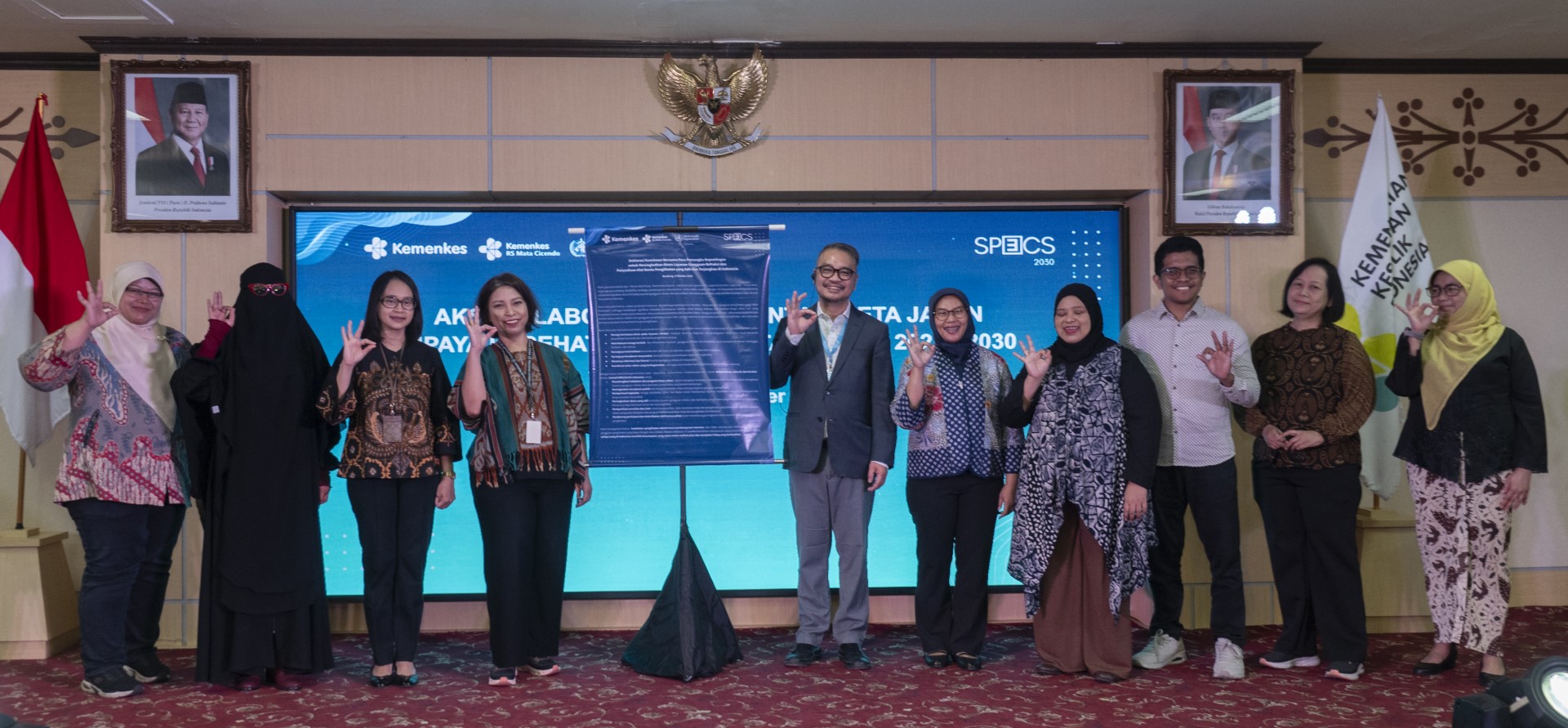Bandung, 9 October 2025 – The Government of Indonesia and key stakeholders today signed a historic declaration to expand access to affordable eye health services and eyewear. This step also marks Indonesia's entry into WHO SPECS 2030, a global initiative to ensure that everyone who needs vision correction receives quality, affordable and people-centered services.
Globally, two out of three people who need glasses do not have them, especially in low-income countries. In Indonesia, the Rapid Assessment on Avoidable Blindness survey estimates that around 15 million people aged 50 and over experience visual impairment, with cataracts and refractive errors being the leading causes. Meanwhile, other research shows that 44% of school-age children have vision problems.
"Vision is fundamental to human development and dignity," said Dr Siti Nadia Tarmizi, Director of Non-Communicable Disease Control, Ministry of Health. "Through this commitment, we support increasing access to equitable and affordable eye health services for all Indonesians as part of the 2025-2030 Vision Health Roadmap."
This commitment aligns with Law Number 17 of 2023 about Health, which affirms the government's responsibility to provide safe, quality and affordable eye health services. Through the Integrated People-Centred Eye Care approach, Indonesia targets increased early screening and expanded access to visual aids, as outlined in the Roadmap for Vision Health 2025-2030.
Strategic steps taken include the establishment of Vision Centres in primary care settings, the implementation of teleophthalmology to reach remote areas, strengthening health workers and facilities and increasing public awareness about the importance of routine eye examinations.
"By addressing refractive disorders comprehensively, Indonesia is addressing barriers to human development," said Dr N. Paranietharan, WHO Representative to Indonesia. "This initiative combines service improvements with systemic reform and multi-stakeholder engagement, serving as a model for other countries. WHO stands ready to support Indonesia in achieving universal eye health coverage by 2030."
This multi-stakeholder collaboration involves the government, civil society organizations, medical professionals, disability groups, development agencies and private partners. The primary focus is on aligning policies, expanding services and ensuring that vulnerable groups receive equitable benefits.
The tangible impacts of this collaboration are expected to include improved learning achievement, reduced school dropout rates, increased worker productivity, reduced injuries and accidents and maintained independence for the elderly. Communities in remote areas will also have easier access to quality eye health services through mobile screening and telemedicine technology.

Left to right: Dr Prihandriyo Sri Hijranti from the Ministry of Health, Anita Nur Fadjar Asri from West Java Province Health Office, Director of RS Mata Cicendo Dr Antonia Kartika Indriati, Dr Fransiska Mardiananingsih from WHO Indonesia, Dr Rolando Enrique Domingo from WHO Western Pacific Regional Office, Dr Yeni Dwi Lestari from PERDAMI, Stela Putri from Pertuni, Andi Muhammad Arief Malleleang from OneSight-Essilor, Anna Yulia from FHF, Dr Ira Dewi Jani from Bandung City Health Office during Collaborative Action to Implement the 2025-2030 Vision Health Roadmap/Launching of SPECS 2030 Indonesia Initiative in Cicendo Eye Hospital, Bandung, 9 October 2025.
Credit: WHO/Rosa Panggabean
